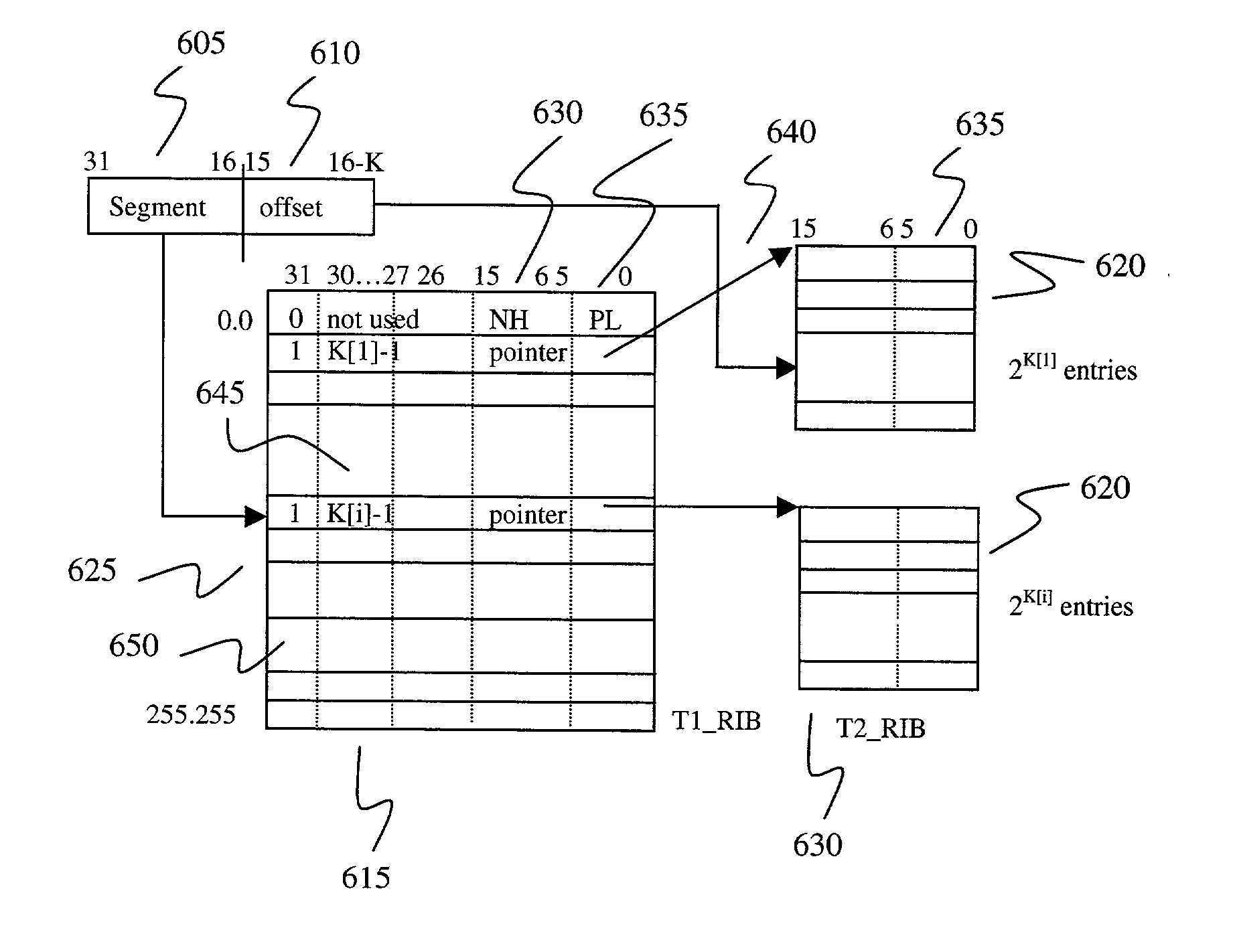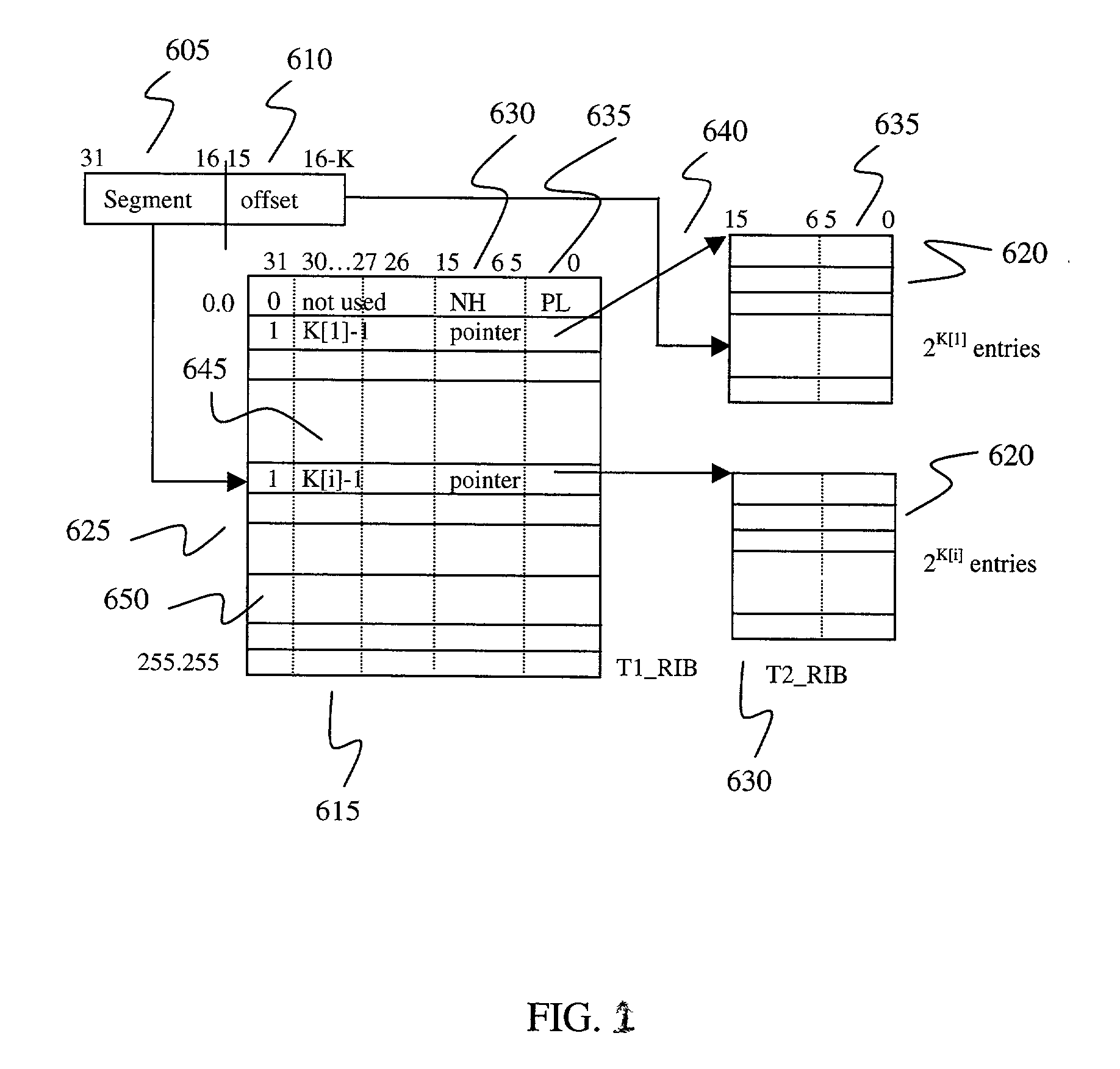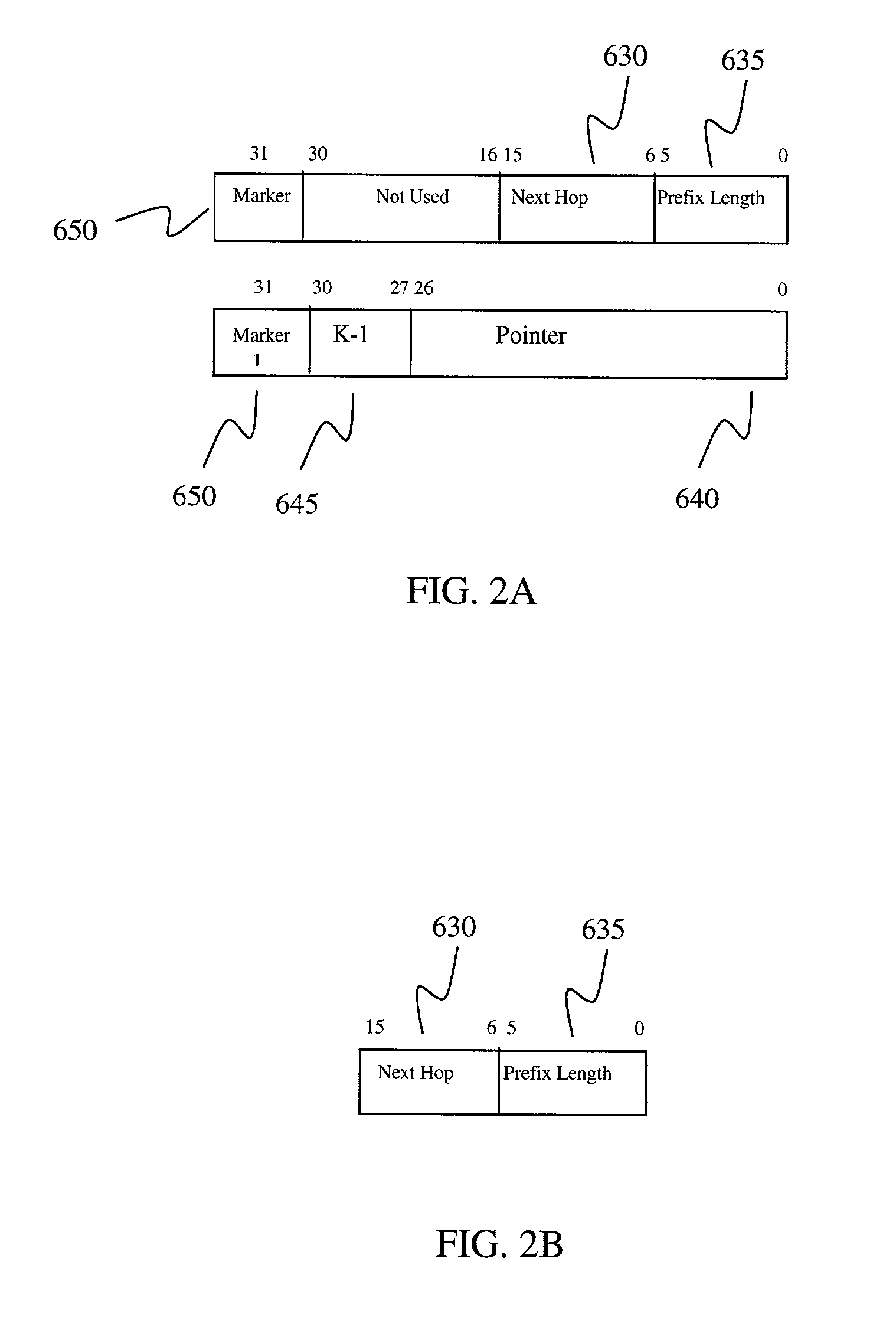Fast IP route lookup with 16/K and 16/Kc compressed data structures
a data structure and compressed data technology, applied in the field of routing messages in communication networks, can solve the problems of poor performance, low efficiency and difficulty in being scaled to high-speed interfaces, and difficult to change or upgrade to accommodate new features
- Summary
- Abstract
- Description
- Claims
- Application Information
AI Technical Summary
Problems solved by technology
Method used
Image
Examples
Embodiment Construction
[0028] Each IPv4 packet has a layer 3 field containing a 32-bit destination IP address. In the following embodiments, the most significant 16 bits are grouped together and called a segment 605 and the remaining K bits are called an offset 610. K is variable ranging from 1 to 16 and is chosen in order to minimize redundancy in the table. The data structure will have two levels of tables in order to store the routing information base (RIB): namely, T1_RIB (first level) and T2_RIB (second level) tables. FIG. 7 shows the two hierarchical levels for the 16 / K data structure. The most significant 16 bits of an IP destination address are used as an index to the T1_RIB table 615. The index to the T1_RIB table 615 ranges from 0.0 (for the first entry 625) to 255.255 (for the last entry 625). Totally the T1_RIB table 615 has 2.sup.16 entries. Each entry 625 in the T1_RIB table 615 is 4 bytes; thus its total size is 2.sup.16*4 bytes=256 KB. Each entry 625 in the T1_RIB table 615 stores next hop...
PUM
 Login to View More
Login to View More Abstract
Description
Claims
Application Information
 Login to View More
Login to View More - R&D
- Intellectual Property
- Life Sciences
- Materials
- Tech Scout
- Unparalleled Data Quality
- Higher Quality Content
- 60% Fewer Hallucinations
Browse by: Latest US Patents, China's latest patents, Technical Efficacy Thesaurus, Application Domain, Technology Topic, Popular Technical Reports.
© 2025 PatSnap. All rights reserved.Legal|Privacy policy|Modern Slavery Act Transparency Statement|Sitemap|About US| Contact US: help@patsnap.com



